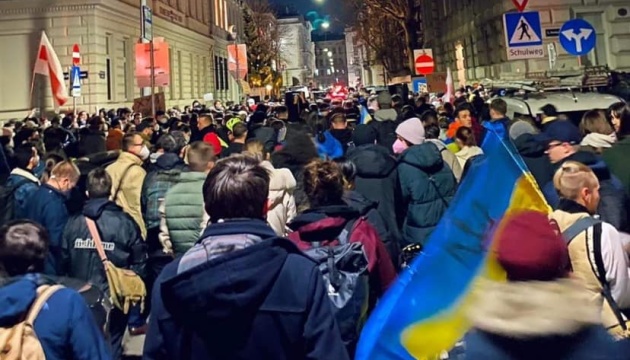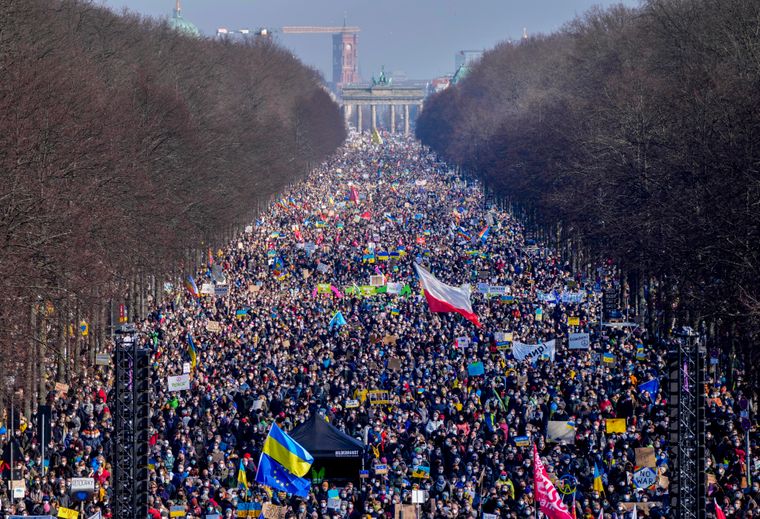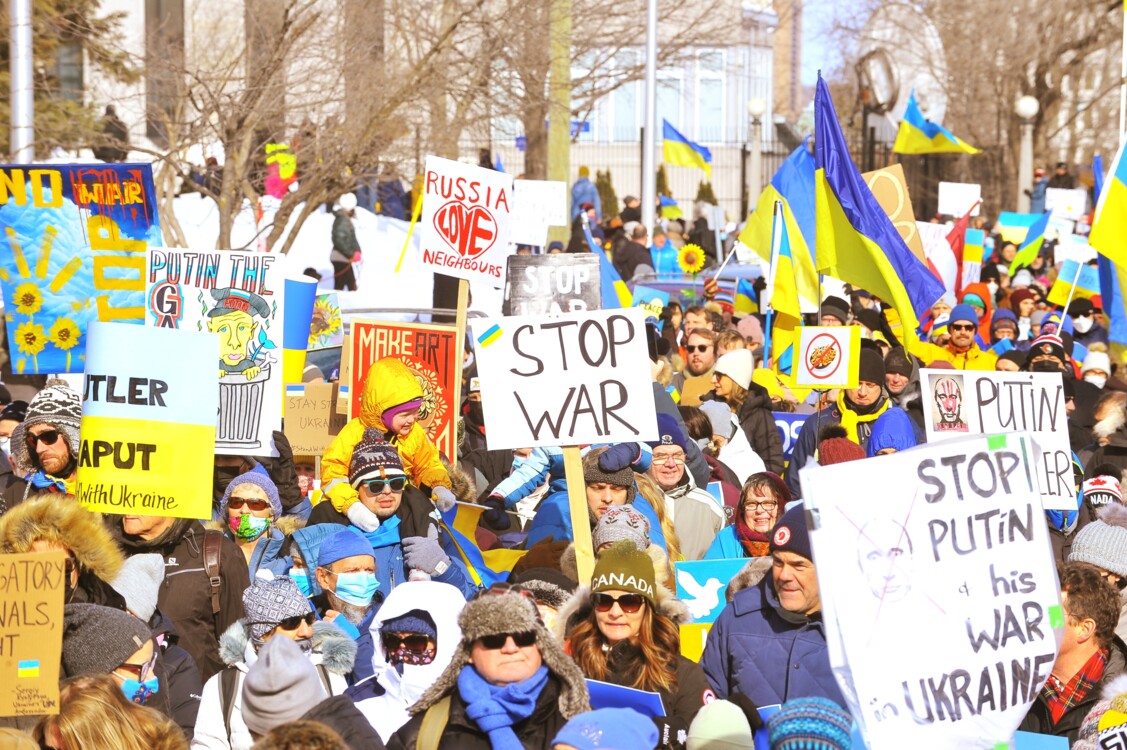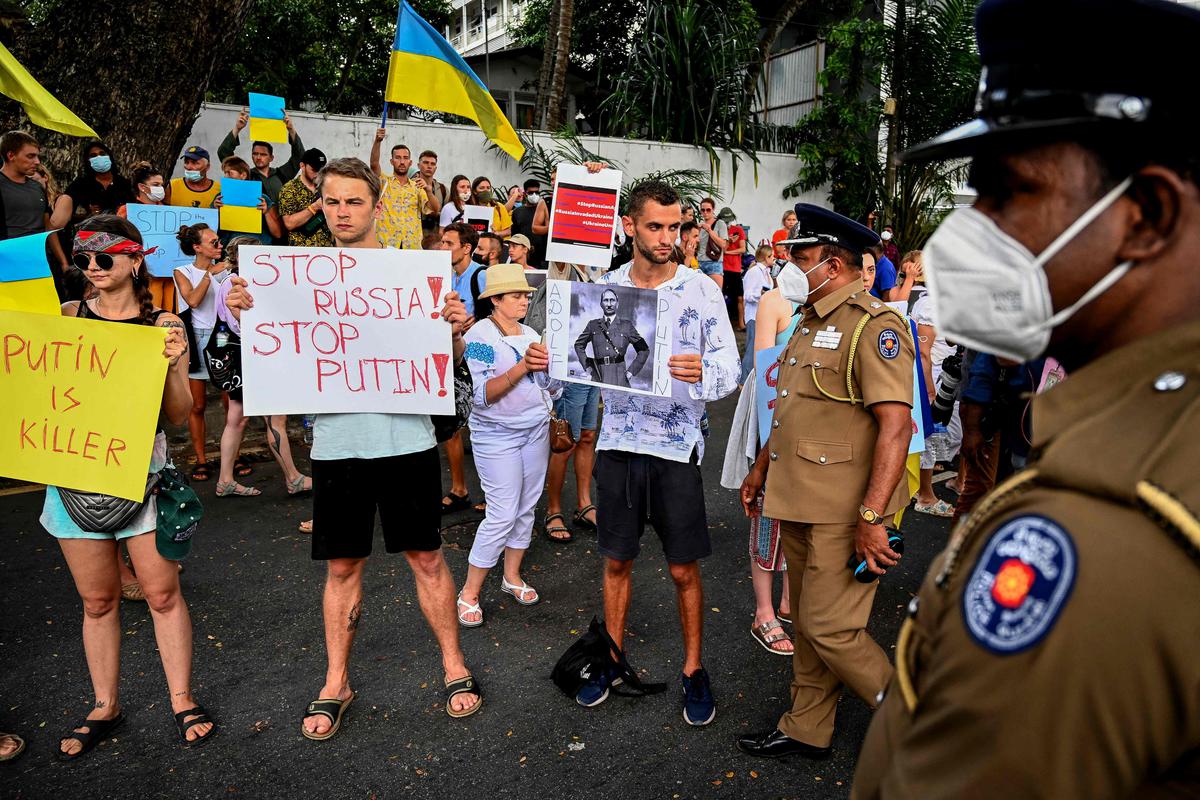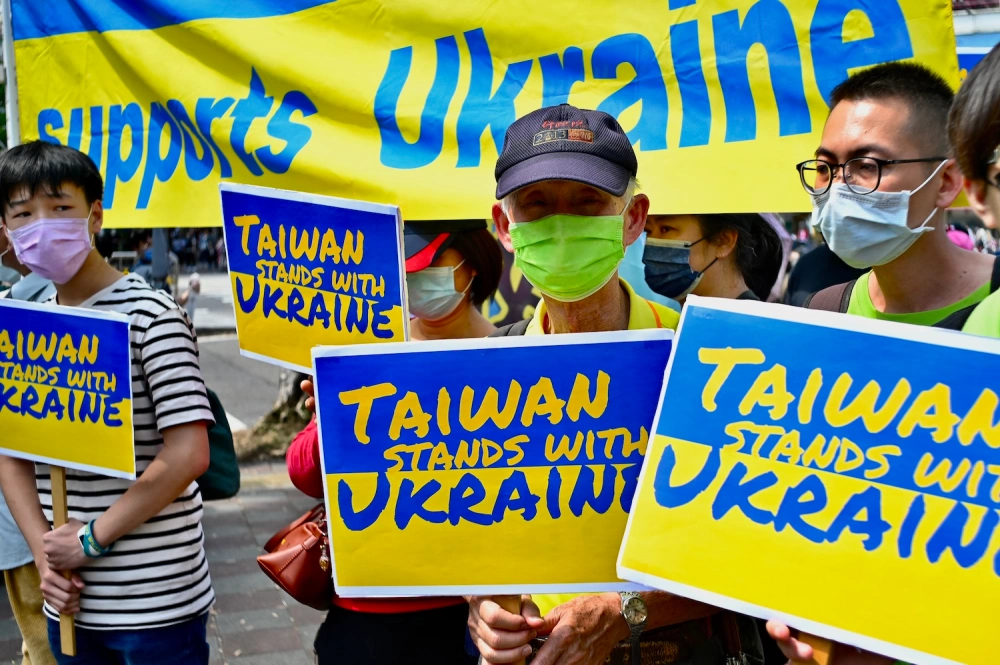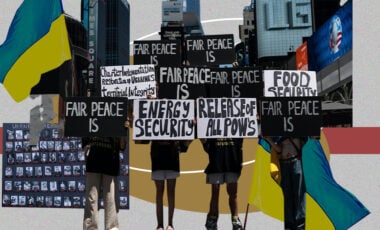How to organize a rally in support of Ukraine abroad and why it is important
The world is getting tired of war and is actively switching the channels talking about it. But such an option is not available to Ukrainians. So the only way out is to speak louder and ask for support more persistently. One way is organizing peaceful rallies around the world.
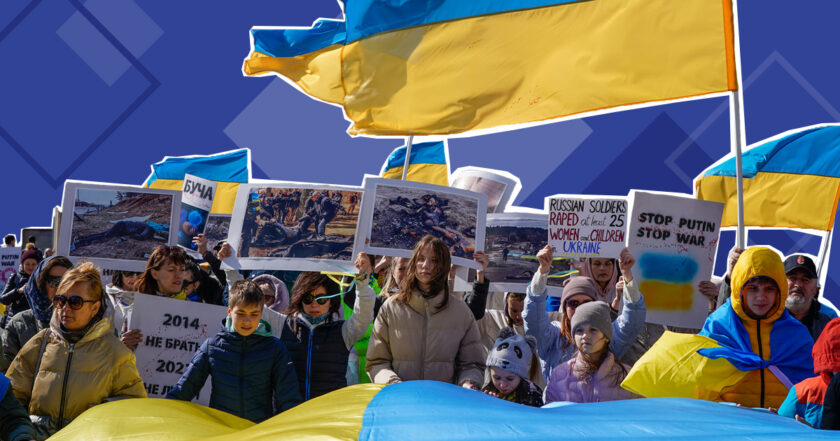
Rubryka talked to Ukrainians who go to protests, organize them, and tell others about them.
What is the problem?
Fewer protests
Vienna. Mid-March. Several hundred people are walking through the square of the Austrian capital. Some of them are with blue-yellow flags. A car is driving ahead. There is a speaker on it. Okean Elzy song is playing. People are singing. Someone is crying. Someone is filming. Later, a video of the procession will appear on TikTok. And the pin of the next rally will appear on the #WorldForUkraine map. And there will be thousands of other similar pins.
Ukrainians continue to escape from the war. And then they finally want to return home. Someone decides to stay abroad but would also like to know that their loved ones are finally safe in Ukraine.
But this is impossible until we win this war. Until we get proper support. Until we learn how to remind about the importance of our victory for Europe.
"Now fewer people go to rallies, yes. First, in the flow of news and announcements, people do not see information about the manifestations; the announcements simply get lost in the flow of information. Secondly, Ukrainian immigrants are busy arranging their lives. Many of them put their needs for comfort above the obligation to support Ukraine through their presence at the demonstration," says Anna Klais, a Ukrainian living on the Cote d'Azur in France for eight years.
With the beginning of a full-scale war, Anna became involved in helping refugees and began actively participating in protests and organizing them. But now, there are fewer protests, although their role remains the same.
What is the solution?
Anti-war rallies
Anna talks about the French who support Ukrainians and the Center for Helping Ukrainians, where she has volunteered since the beginning of the full-scale russian invasion. She says that in previous years she did not maintain close contact with other diasporans, but now the main driving force of peaceful rallies are those Ukrainians who moved abroad even before the full-scale war.
"I joined the organization of commemoration evenings for the victims in Bucha, Irpin, Hostomel, Borodyanka, the demonstration in Mariupol's support, and other cities of Ukraine that suffered from russia's aggression. Then the head of the association of Ukrainians in Cannes received official permission to hold a two-hour evening demonstration on the square near the Palace of Festivals.
A specific code of conduct was announced over the loudspeaker at the beginning of the demonstration. A week before the rally, I created an event page on Facebook with all the details (in Ukrainian and French) and shared the information to various Facebook groups. Actually, this is what the organizational process looks like," Anna shares.
Dissemination of information about actions is perhaps the most crucial layer of work, which depends on the scale of the event. Germany has a separate information platform that informs about upcoming rallies. Its founder Yuriy Kechur says:
"MUCraine is a Ukrainian information platform in Munich which covers local events supporting Ukraine: rallies and charity events. We unite Ukrainian and German audiences. One of our goals is to give an assessment and publicity to the difficult political relations between the two countries, as well as to present the Ukrainian position in the German political system: in conditions where we cannot allow Ukraine's fate to be decided without Ukrainians.
The russian-Ukrainian war as a phenomenon is unambiguous for all Ukrainians and therefore unites them. Instead, since February 24, Germany became increasingly polarized and divided into right and left, pacifists and ardent fighters, those who donated all their savings to support Ukraine, and those who were ready to give all post-Soviet lands to russia for the sake of preserving European comfort."
How does it work?
There is no panacea, but there are chances
According to Yuriy Kechur, the decline in attention to Ukraine is an entirely expected phenomenon. However, for diplomats and everyone who cares about Ukraine, the next task is to create as many long-term agreements on specific support as possible. But how do we attract this attention further and encourage people to go to protests?
"Ukrainians should be constantly reminded that their personal safety abroad does not mean the safety of their compatriots and that the rallies are directly related to it. After all, they not only express Ukraine's request to the local authorities for military and economic assistance but also constantly remind the host country's citizens that the war is not over.
Reduced attention to rallies can also be compensated for by attracting refugees from Ukraine. They must remember that their shelter abroad and social benefits are essentially the merits of protests and social pressure. And all good things come to an end sooner or later, especially if you don't remind of the need to continue it (that is, don't remind of the war). Refugees often have a lot of free time and a desire to socialize. And here, only two options immediately come to mind: volunteer centers and rallies. And better — both!
Foreigners, in turn, should emphasize two critical points. First, Ukrainians fight not only for their own freedom but also for democratic values and the peaceful sleep of every European. Secondly, russia's plans to conquer all territories where russian-speaking people have set foot, as well as its threats to other EU countries, make Europeans think: shouldn't we be worried not only for Ukraine but also for ourselves? Therefore, our mission is not to manipulate these facts, but only to remind about them", Yuriy Kechur is convinced.
What does MUCraine do for this: it reaches out to its target audience in various ways and reminds them daily of what is really happening, what is Ukraine's position, what we want from partners, and why it is essential to increase support.
Does it really work?
"I don't know my what my future will be like"
The stories of Ukrainians who suffered from the war and remind the world about it in every possible way confirm that rallies work and impact different levels. First, it helps the aforementioned official diplomacy. Secondly, it is a way to achieve targeted support for those who need it. Yuliya Volodina, a Ukrainian refugee and peaceful actions participant, says after another rally in Sri Lanka:
"Colombo allowed us to be heard, the locals learned about the war, and now they offer help with anything in the chat rooms. The rally in Colombo gave us an opportunity to rally and merge together. Our bodies were at the rally, but our hearts were at home. With one hand, you hold a poster, and with the other, you chat with loved ones and check the news. We cried. I don't know my future. But I believe in the indomitability of the Ukrainian people."
Meanwhile, Yuriy Kechur emphasizes that by going to the rally, you become a full-fledged participant in the political confrontation. By uniting with others, you can have a real influence even if you can't feel it on a particular date on a specific square.
"Unfortunately, Ukraine's future is only partly in the hands of the Armed Forces of Ukraine and largely in the hands of Western partners. So, by creating quality content externally (for foreign consumers), you become an active participant in the political confrontation. You influence people abroad, and they influence the government, which ultimately helps Ukraine," concludes the activist.
More useful solutions!
How can you help if you can't go to the rally?
It is not always possible to join the rallies in person, which is normal. However, even so, you can do something:
spread the word about upcoming rallies;
share stories of Ukrainians with friends from abroad;
become friends with foreigners and share verified news from Ukraine in English or other languages on your pages and in open groups;
periodically share information about where refugees can get help and vice versa — how they can be helped;
support independent Ukrainian media, and tell your foreign friends about it. Remember that Rubryka has an English-language version and social networks: Facebook and Twitter.



